TechRadar Verdict
The OnePlus Buds Pro 3 may look like an incremental upgrade over the Buds Pro 2, but they deliver a dramatically more robust and dynamic sound that punches well above their weight (and by weight, I do mean price). They’re also brimming with features, and offer solid cross-device and cross-platform compatibility. ANC and transparency mode are comparatively mediocre, though.
Pros
- +
Superb sound for the money
- +
Impressive battery life
- +
Stuffed with features
Cons
- –
New design won’t suit everyone
- –
ANC & Transparency modes are ‘just fine’
- –
No voice command or conversation awareness support
Why you can trust TechRadar We spend hours testing every product or service we review, so you can be sure you’re buying the best. Find out more about how we test.
OnePlus Buds Pro 3: Two-minute review
Earlier this year, the OnePlus Buds 3 made their debut with an updated design language and a more balanced sound than anything we’d heard from the company to date. Now, with the arrival of the OnePlus Buds Pro 3, that same approach has been kicked into overdrive; resulting in OnePlus’ best noise-cancelling earbuds yet, and by quite a stretch.
Although on paper, the OnePlus Buds Pro 3 sport a similar spec sheet to their predecessors, the company has enhanced things at a component level; meaning the familiar dual driver design is now also backed by dual DACs in each earbud, plus a few other hardware tweaks. Pair that with revised tuning from Dynaudio and, while the Buds Pro 3 retain their forebears penchant for bass, there’s far more dynamism in that lower frequency range, joined by more balanced mids and crisp highs; right through the volume range.
The Pro 3 are also brimming with features and most of them aren’t solely tied to OnePlus devices anymore. You now get decent spatial audio support (with head tracking) that works on a far greater range of Android devices than before (as well as non-Android iPhones). Seamless dual device switching, a low latency game mode and five excellent EQ presets, along with a frankly outlandish bass boost feature and the ability to tune your own profiles too.
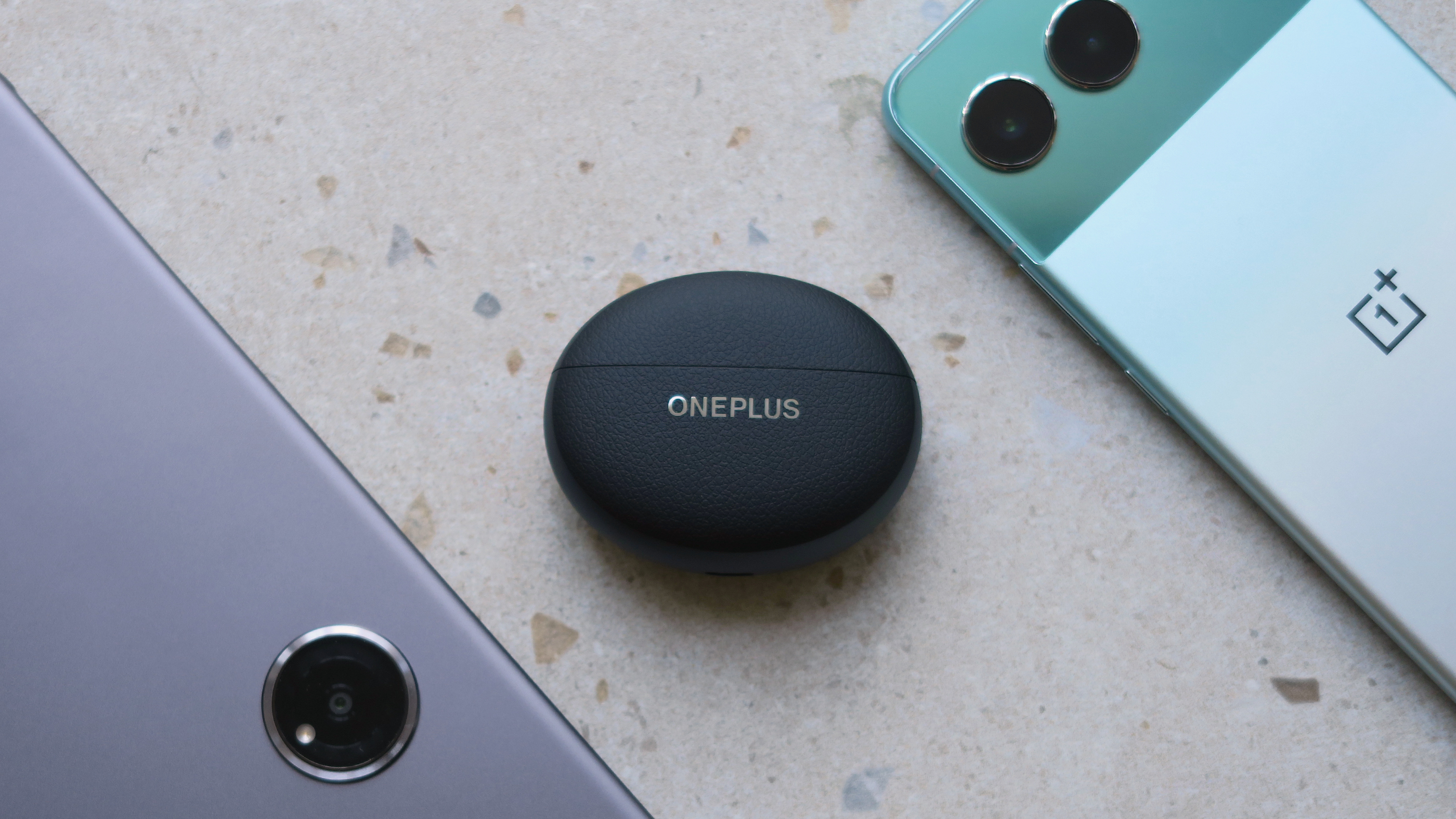
Any downsides? One. As much as the sonic profile has come on – enough to make these true rivals for notable buds from audio-first brands such as Bose and Technics – and despite packing what OnePlus bills as its best noise cancelling yet, ANC (active noise cancellation) is good but not class-leading. Microphone performance is fine too, with acceptable background noise suppression, but the transparency mode does little to differentiate itself from being switched off entirely.
You’ll also have to reconcile yourself to the absence of features from similarly-priced rivals, namely conversation-awareness and voice command support. Are these deal-breakers? (I’d suggest they’re not, but it’s worth noting that they’re not here.)
Speaking of deals, despite all the advantages and upgrades over its last few buds, OnePlus hasn’t upped the price of the Buds Pro 3 in most markets, including the US, where they cost $179 (with an early bird reduction at the time of writing, to $149). UK buyers will have to swallow a £20 price bump versus the Buds Pro 2, but they too can be had with an early bird offer that knocks them back down to £179. Not bad, eh?
OnePlus Buds Pro 3 review: Price and release date
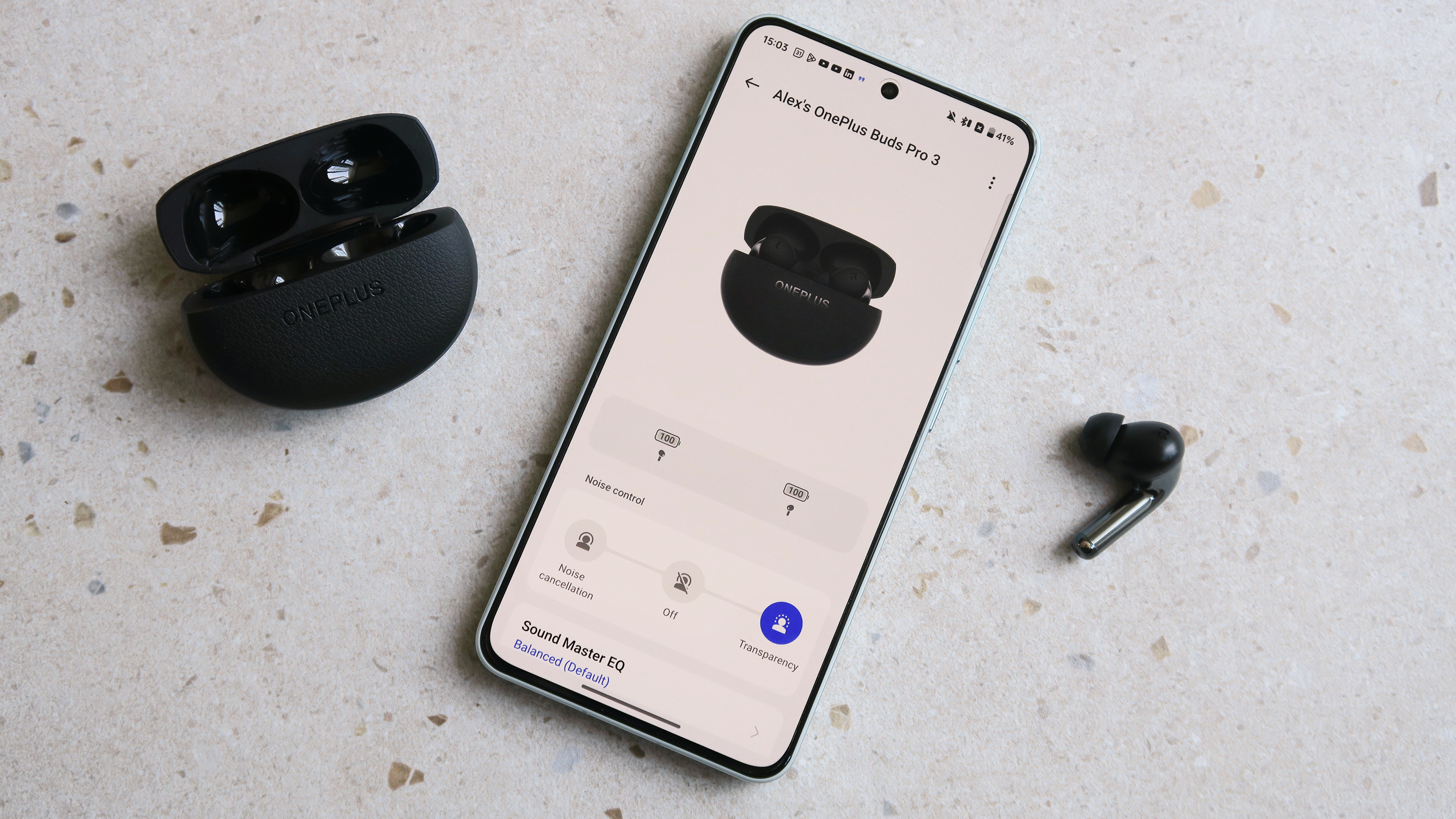
- Launched on August 20, 2024
- Priced at $179.99 / £199 / Australian pricing TBC
- Early bird pricing includes a $20 / £20 discount
The standard OnePlus Buds 3 arrived on the market in February 2024 and six months later (in which time they leaked extensively), the OnePlus Buds Pro 3 launched, on August 20, 2024.
In most markets, OnePlus has set the Buds Pro 3 at the same asking price as the previous OnePlus Buds Pro 2: $179.99 in the US, €179 in Europe and ₹13,999 in India. The exception to that is the UK, where the Buds Pro 3 see a £20 increase to £199, which reframes their standing in the market as a slightly more premium offering, comparatively.
The silver lining is that, at the time of writing, OnePlus is still offering the Buds Pro 3 up with an early bird discount; a $20 reduction to $149.99 Stateside; making them something of a steal, considering the sound quality on offer. That same reduction also carries over to the UK too, so the price drops back down to its predecessor’s RRP of £179, for the time being.
Australian pricing and availability hasn’t yet been revealed, but as the Buds Pro 3 are already listed on OnePlus’ regional website, the implication is that they’ll be on sale sometime soon.
OnePlus Buds Pro 3 review: Specs
Swipe to scroll horizontally
| Drivers: | 11mm + 6mm dynamic drivers |
| Weight: | 5.28g (buds); 50.57g (case) |
| Frequency range: | 10Hz to 40kHz |
| Battery life: | Up to 10 hours (buds), up to 43 hours (w/ case) |
| Connectivity: | Bluetooth 5.4, LHDC 5.0, Google Fast Pair |
| Noise cancellation: | Real-time adaptive ANC up to 50dB |
| Dust/water protection rating: | IP55 (buds), IPX4 (case) |
OnePlus Buds Pro 3 review: Features
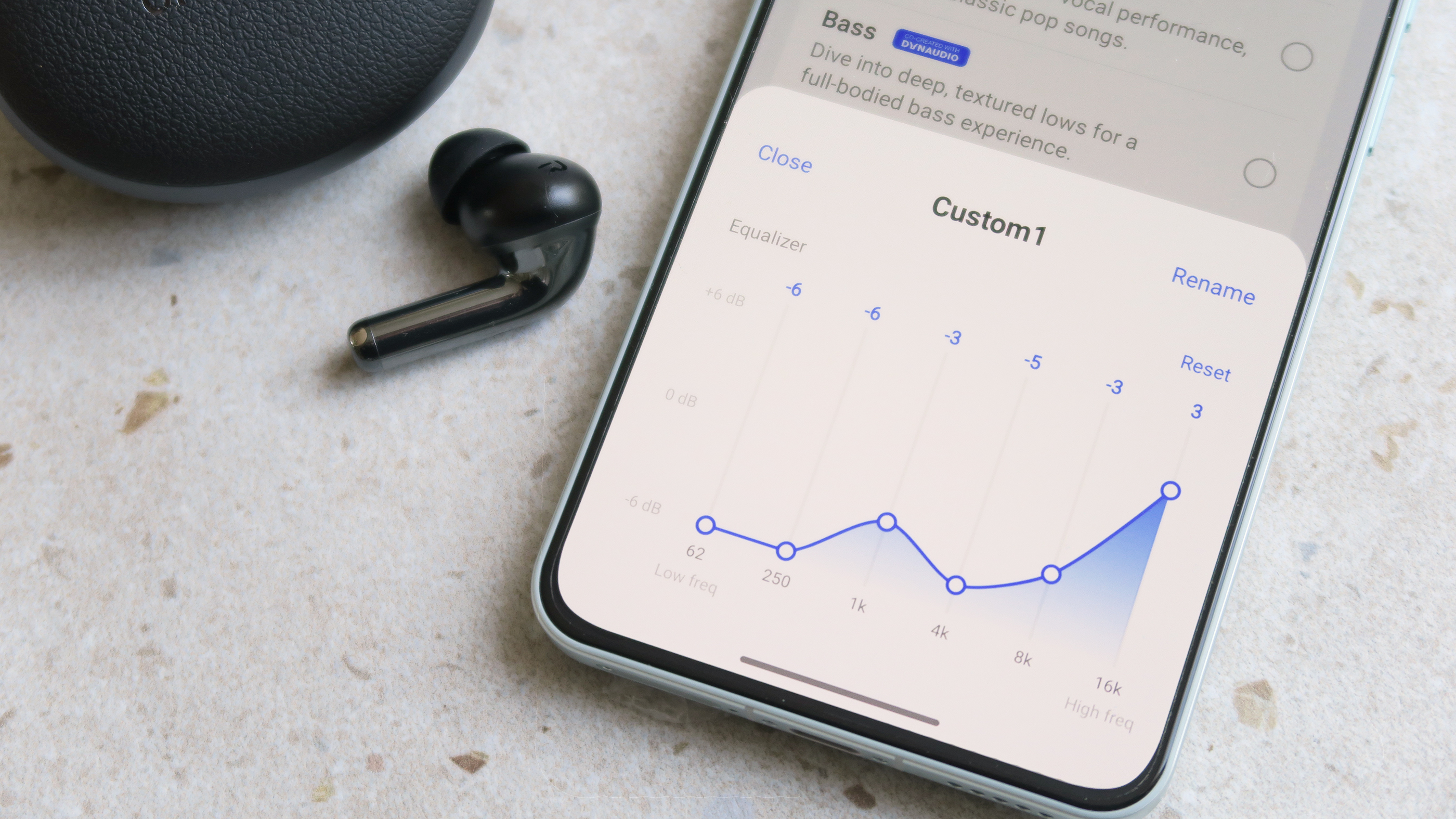
- Check out ‘neck vertebrae health’ tool
- Broader compatibility than predecessor
- No voice command or conversation awareness
Pairing the OnePlus Buds Pro 3 is as easy as opening up the case near a Google Fast Pair-compatible Android phone. So long as Bluetooth is turned on, all you have to do is choose to connect via the card that pops up on-screen, and that’s it. iPhones unsurprisingly don’t feature Google Fast Pair but connection is still painless, with a long-press on the pairing button on the side of the case, after which you just have to select the buds from the Bluetooth menu, like usual.
If you’re rocking any of the best OnePlus phones, unlocking the full feature set of the OnePlus Buds Pro 3 is as easy as pairing; with access to everything direct from the Bluetooth devices menu. For any other Android phone or iPhone, control falls to the HeyMelody app (which serves up an identical UI).
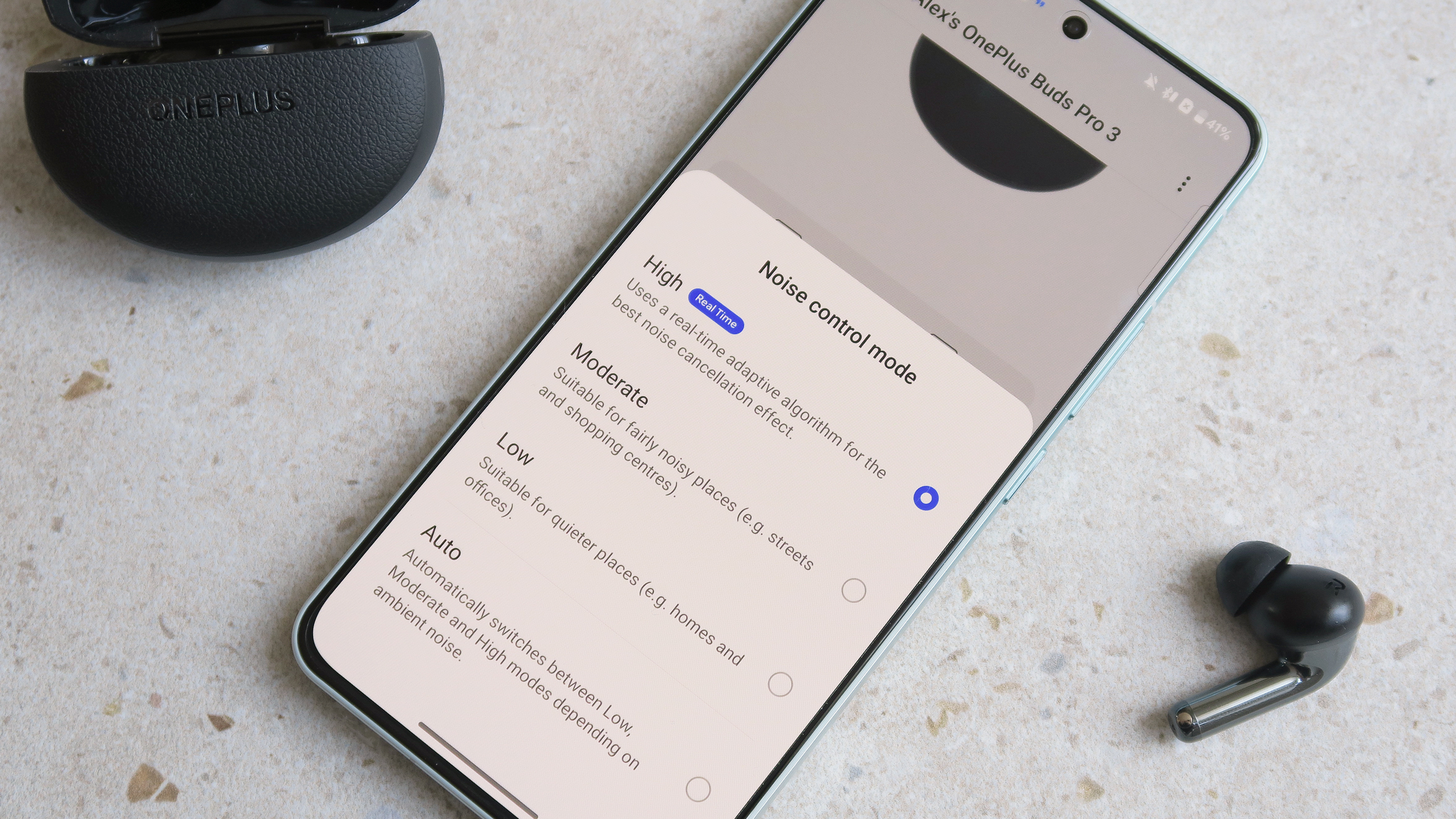
From top to bottom, you’re presented with a battery readout, Noise Control (which lets you toggle on ANC, Transparency or turn off both). There’s then a noise cancellation sub-menu, where you can select the degree of background noise suppression; that includes three levels, as well as a dynamic ‘auto’ mode.
The Sound Master EQ sub-menu plays home to the hard work the Danish engineers at Dynaudio contributed to the Buds Pro 3, with five presets (Balanced, Bold, Serenade, Bass and Dynaudio featured), along with an additional BassWave toggle that can be paired with any of the EQ profiles and itself includes a -/+ 5 slider. Rounding out this menu is where you can build your own custom EQ profiles, split into six frequency sliders.
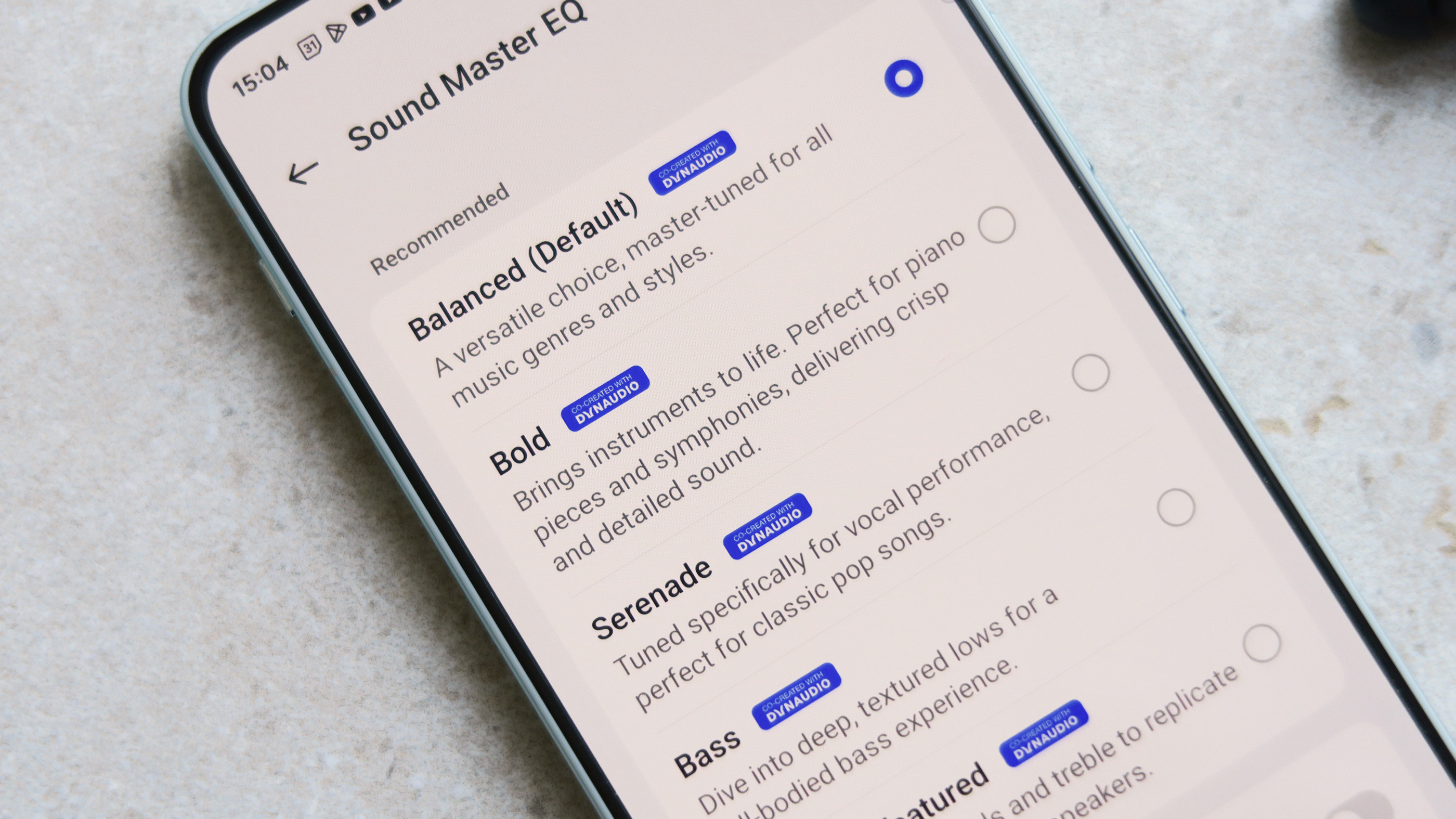
Hi-Res mode is next, with the OnePlus Buds Pro 3 opting for LHDC 5.0 as its codec of choice here (alongside SBC and AAC). As for devices that support it, in the smartphone space recent OnePlus, Oppo & Realme phones, as well as the top entries amongst the best Xiaomi phones, and Nothing Phone 1 and 2, are all confirmed to support LHDC 5.0, but there are other offerings from brands like Motorola that play nice with older iterations of the codec too.
I preferred the default ‘Balanced’ EQ profile, with BassWave disabled for general listening, but collectively augmented that configuration with the Golden Sound feature. It takes you through a frequency test for each bud, before building an audio profile unique to your ears; a feature I’d highly recommend you spend the time to set up to get the most out of the listening experience here.
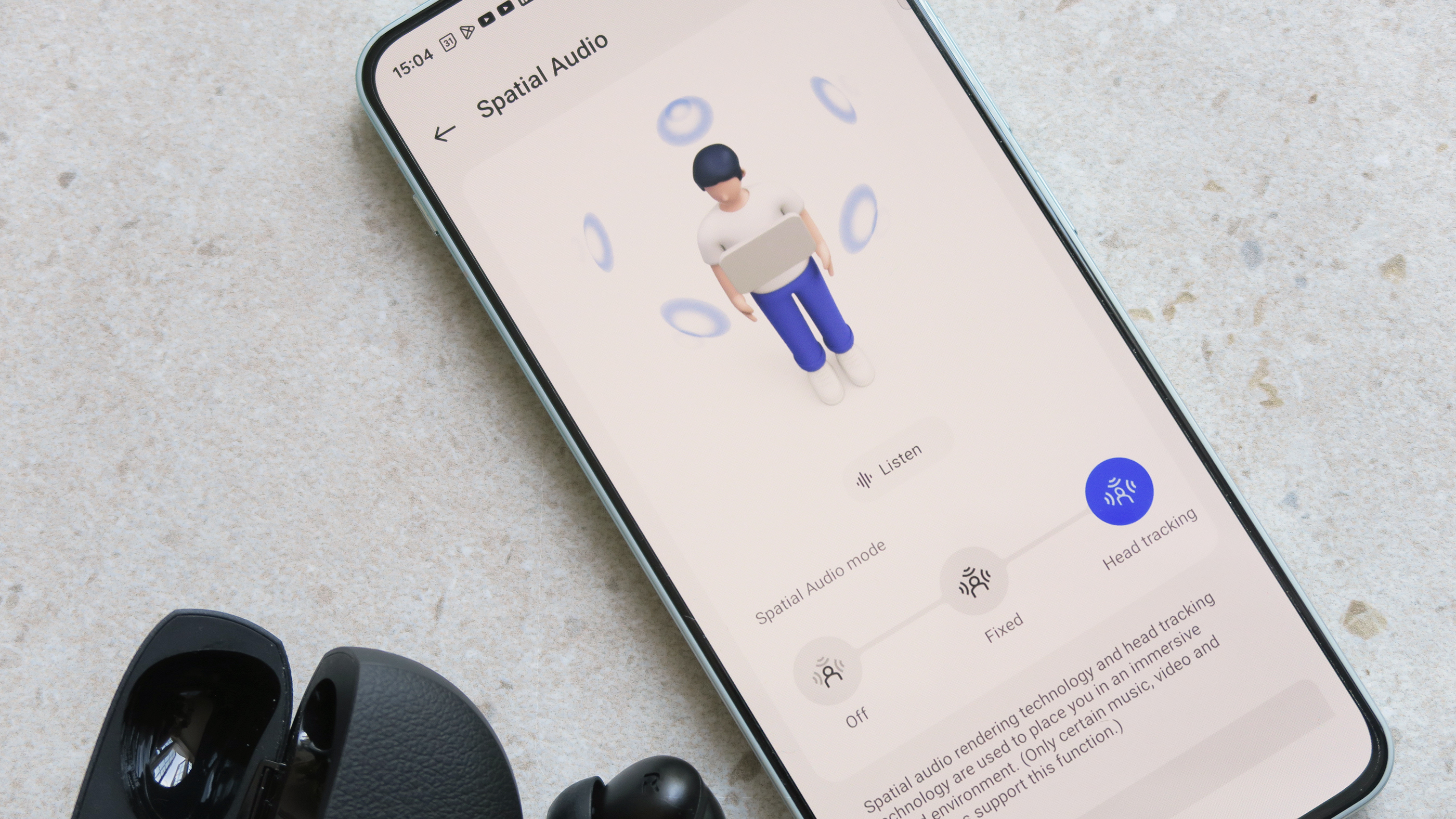
Next-up is spatial audio, which was available on the OnePlus Buds Pro 2 but only worked with flagship OnePlus phones at launch. Now, support is hugely expanded, available across popular music and streaming apps on all sorts of Android phones, and even iPhones (although iOS isn’t using Google’s Spatial Audio profile). Optional head tracking is on the table too, which works well in practice.
There are three Buds Pro 3 features exclusively available to OnePlus smartphone/tablet users, but in the grand scheme of things, don’t feel like damaging omissions if you’re on another platform.
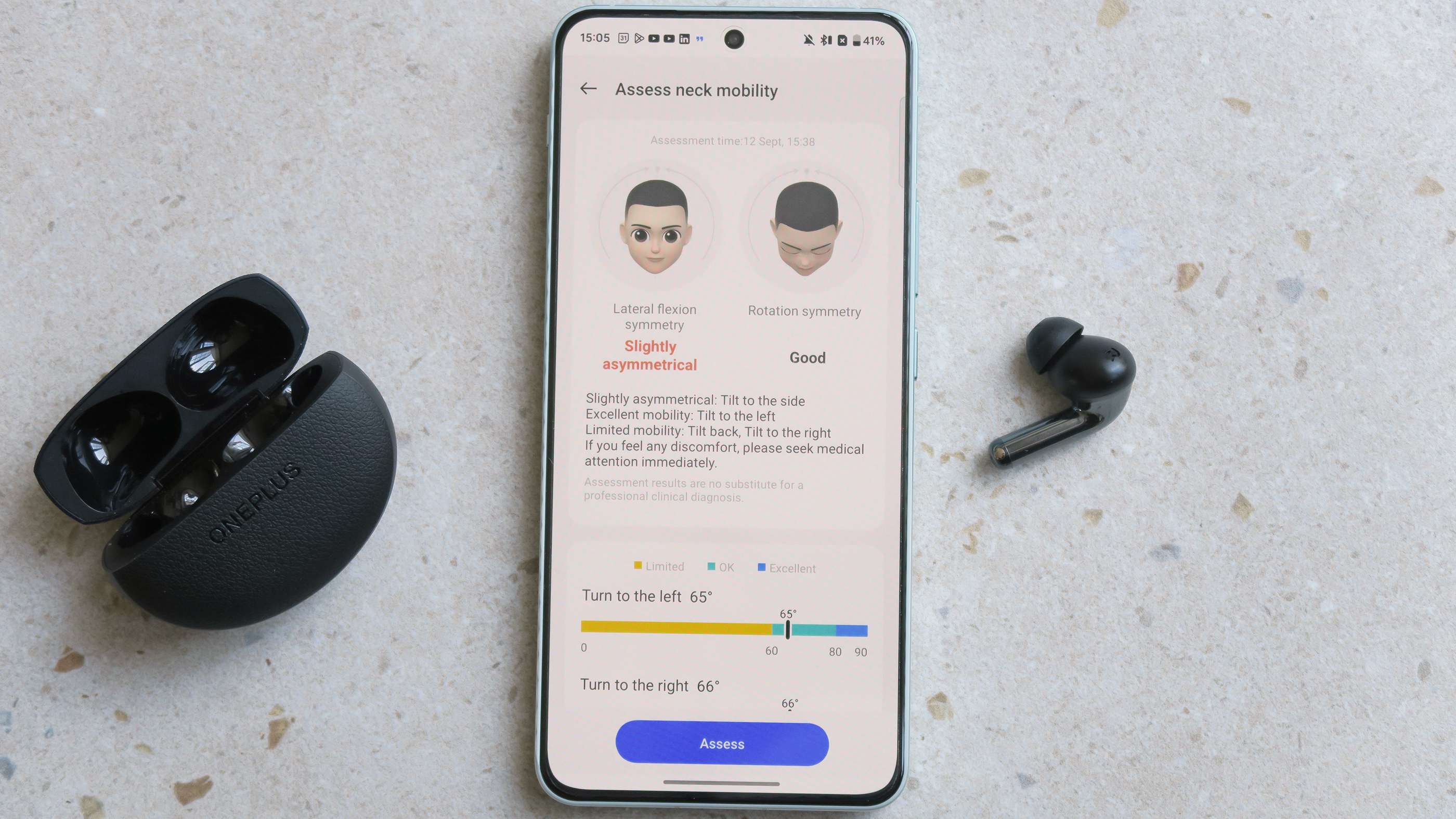
The most interesting is the ‘neck vertebrae health’ tool, which can use the sensors in the buds to assess your neck mobility and even notify you of bad neck posture while you’re wearing them. Zen Mode Air serves up relaxing white noise sounds (like ‘Summer Waves’ or ‘Forest Rain’ in wonderful high fidelity. Lastly, the Buds Pro 3 supports camera control on OnePlus devices, letting you snap a picture with their on-stem controls, or supply your videos with the microphone feed from the buds, if desired.
Game Mode reduces latency between the buds and your device, turning on automatically on OnePlus devices when they detect you’re running a game, while it appears as a toggle in the HeyMelody app for other Android and iOS users.
Multipoint connectivity (branded ‘Dual connection’ here) is a great inclusion on the Buds Pro 3 that, once setup, lets you seamlessly pause audio on one device and move to another without needing to re-pair to keep listening. This works without issue in practice, tested across OnePlus, Android and iOS devices.
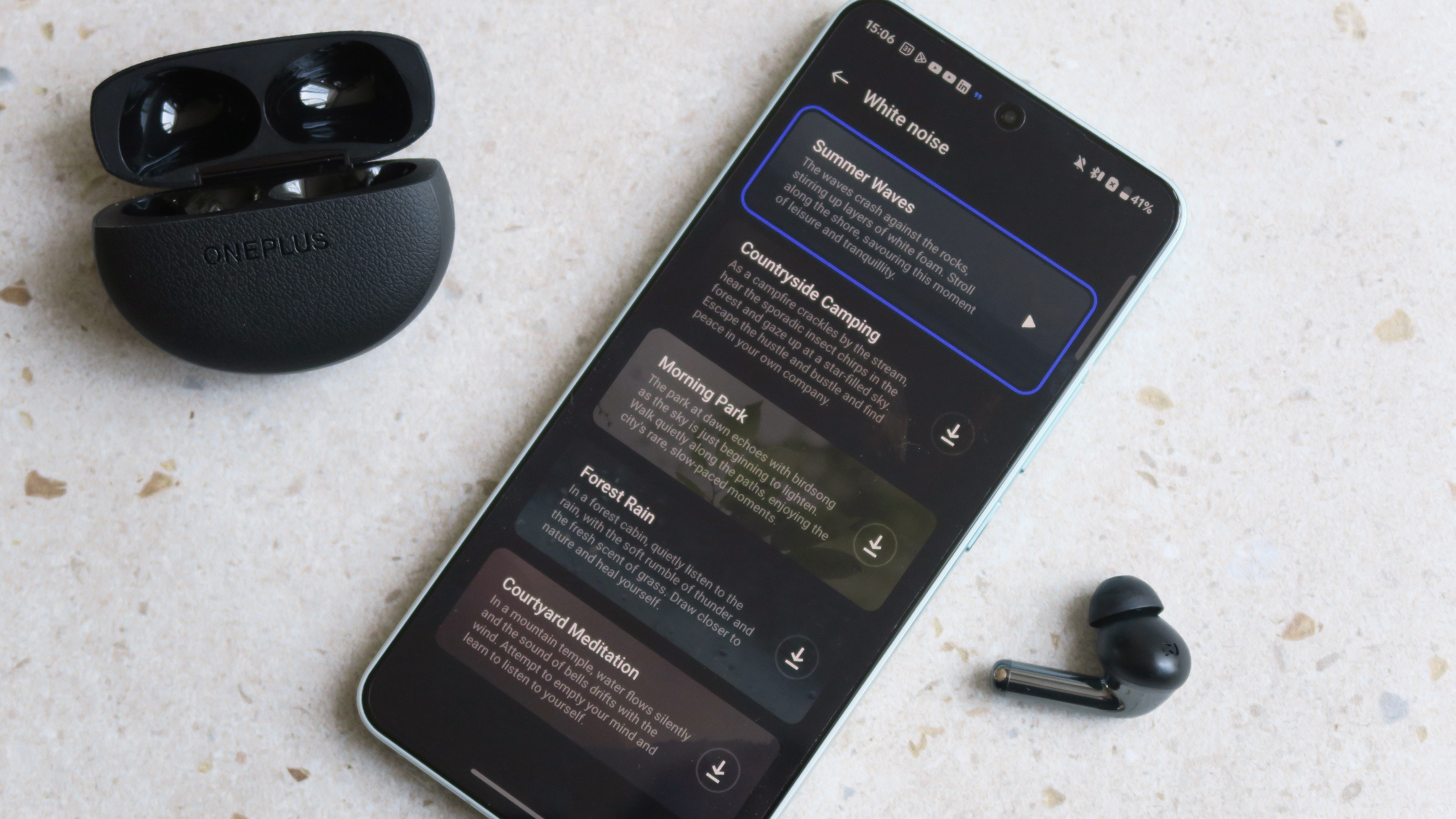
The last two features at the OnePlus Buds Pro 3’s disposal are a fit test – to ensure you have a good seal when wearing them, and a Find My option, which emits a loud tone from the buds when activated, and on Android devices also plugs into Google’s Find My Device system; noting the last location they were used.
In short, an absolute mountain of functionality that makes the Buds Pro 3 incredibly versatile for a variety of listening conditions. All that’s missing is conversation-aware ANC (which quietens or pauses music when the buds detect someone speaking to you or vice versa) and voice commands; for hands-free playback control or interaction with your device’s smart assistant.
- Features score: 4.5 / 5
OnePlus Buds Pro 3 review: Design

- Stemmed buds w/ chromed outer face
- New top-loading case is better, but wireless charging is backwards
- IP55 rated buds, IPX4 case
OnePlus’ Buds Pro line has always sported a stem-style design, originally accented with a chrome-dipped tip aesthetic, while the driver housing has typically been finished in lightly textured plastic. With the Buds Pro 3, however, that chrome finish has crept up to cover the stem and housing completely, which I think is a shame.
While eye-catching, the ‘dipped’ look of previous entries made for a more distinctive appearance, even at a distance. Many levied criticism at Samsung for the design similarities of its new angular stemmed Galaxy Buds 3 and Galaxy Buds 3 Pro, but the more rounded stems and, now consistent, surface finish of OnePlus’ latest buds renders them far more like chrome-clad AirPods Pro 2 doppelgangers, in my opinion.
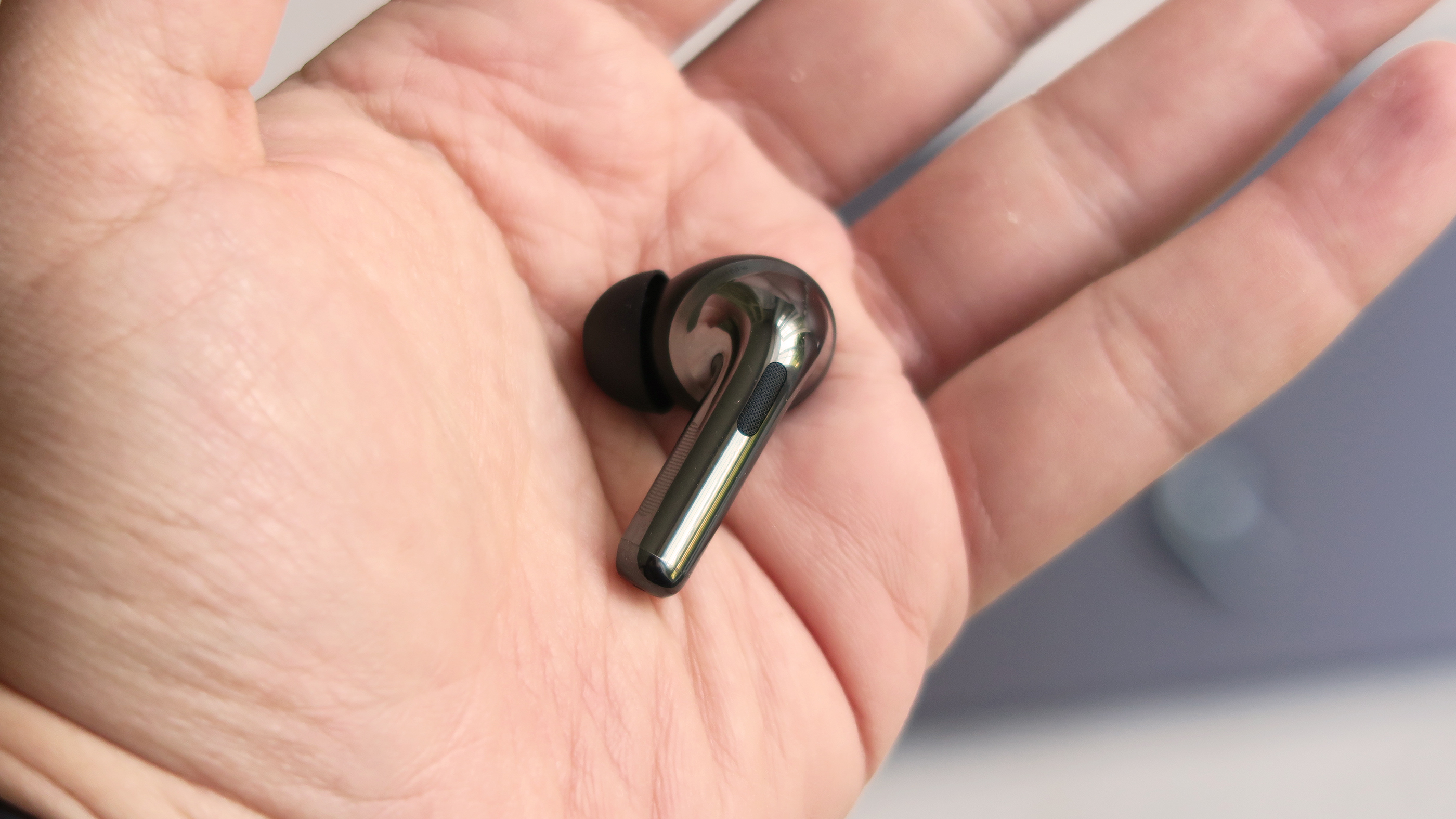
That said, while the finish more readily holds onto fingerprints than previous iterations, ergonomically, it sits far more comfortably in the ear than any true wireless buds I’ve worn of late, and that’s with the pre-fitted medium silicone ear tips. OnePlus also includes extra small, small and large-size oval-shaped alternatives in the box (along with a charging cable).
Despite the fact that they’ve gained a little weight, I found the Buds Pro 3 to be more comfortable and secure when worn (over the older Buds Pro 2), even when working out or for extended periods. In-ear detection proved reliable too, pausing and resuming music when you remove or insert either bud, and it works on iOS as well as Android.
The Buds Pro 3 boasts a completely redesigned case that has caused some discord among fans on platforms like Reddit. In place of the squared makeup compact-style case of previous generations – which opened to reveal the buds in their entirety – the Pro 3’s buds reside within a new top-loading oval enclosure, that features smooth edges, contrasted against a leather-like textured surface finish.
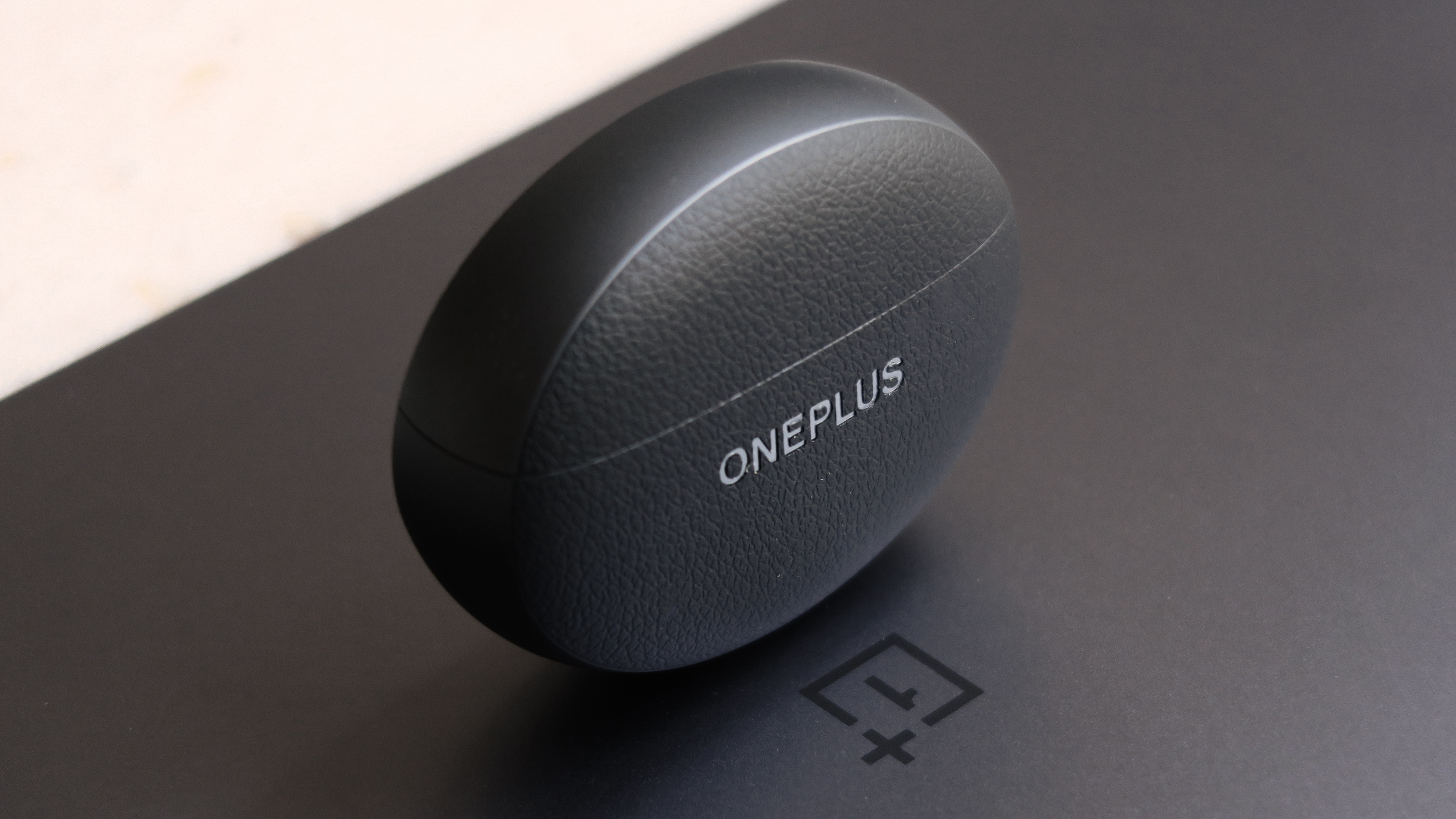
I think the new case makes the Pro 3 more pocketable and more likely to retain the buds inside, should you drop it, but some people don’t seem to appreciate the change. The USB-C port on the case’s underside allows for a quick 10-minute charge to deliver 13 hours of playback (for comparison AirPods Pro 2 deliver just 1 hour of playback from a 5-minute recharge), while a full 100% refill takes approximately 70 minutes.
The OnePlus Buds Pro 3 also, conveniently, include wireless charging too (a full recharge this way takes about 2.5 hours), but for some unknown reason, unlike every other pair of wireless charging-capable buds out there, OnePlus’ new case design demands that you place it face down, instead of face up when recharging without cables. It’s an unintuitive design move that just takes some getting used to. At least with up to 43 hours of use per charge, you won’t have to worry about fiddling with the case on a wireless charger all too often.
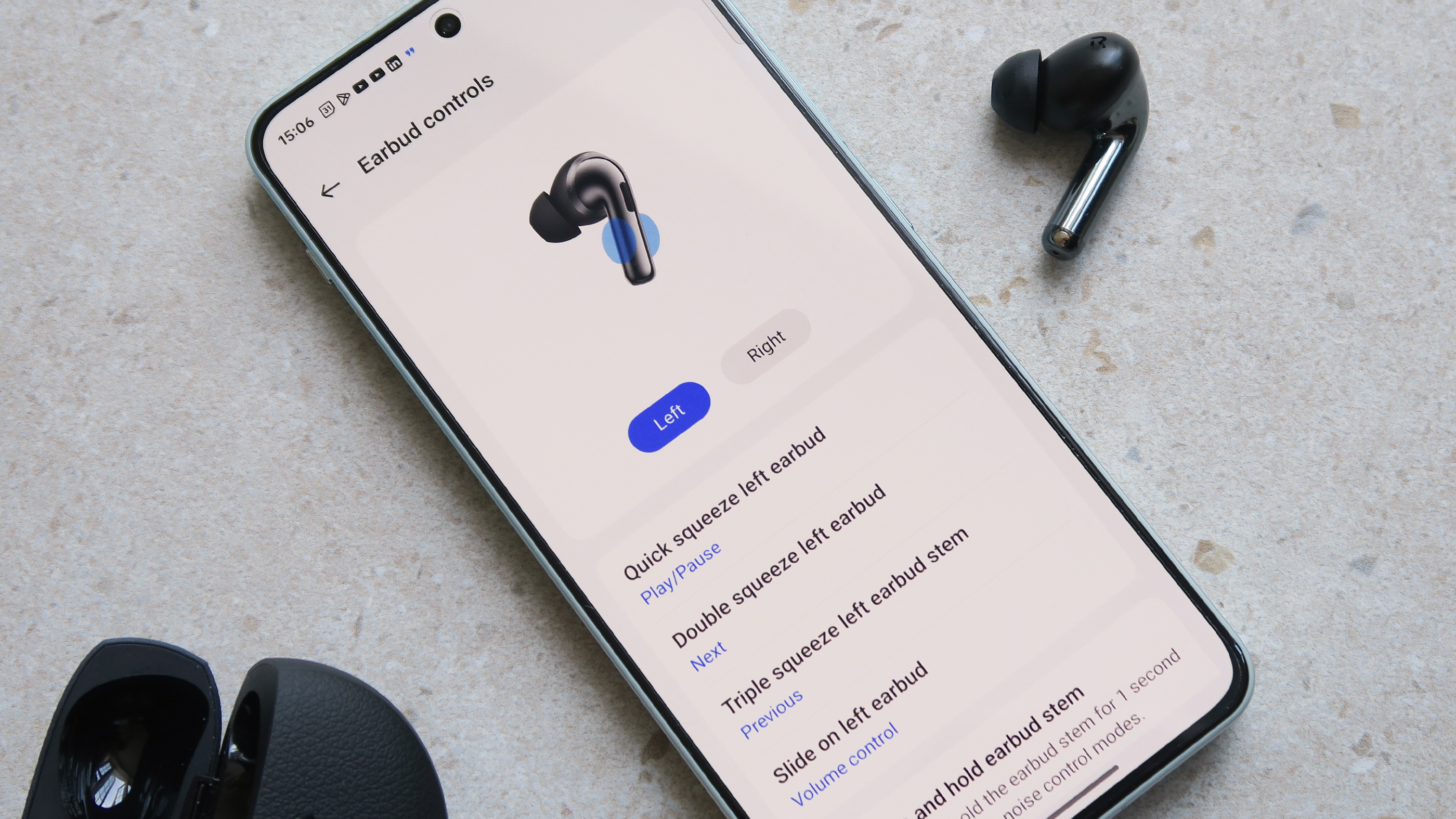
Along with the existing repertoire of stem-based press or press-and-hold controls that previous Buds Pro have sported, the Buds Pro 3 carry across the new swipe gesture added to the OnePlus Buds 3; letting you adjust volume (or switch track) on-ear, by swiping up or down on the front of the stem. Even now, I still sometimes struggle to find the touch-sensitive area consistently, but controls otherwise work reliably.
For added peace of mind, the case is IPX4-rated, while the buds themselves are IP55-rated against dust and water ingress; collectively meaning you should have no issues wearing these when working up a sweat or getting caught in the rain.
- Design score: 4 / 5
OnePlus Buds Pro 3 review: Sound quality
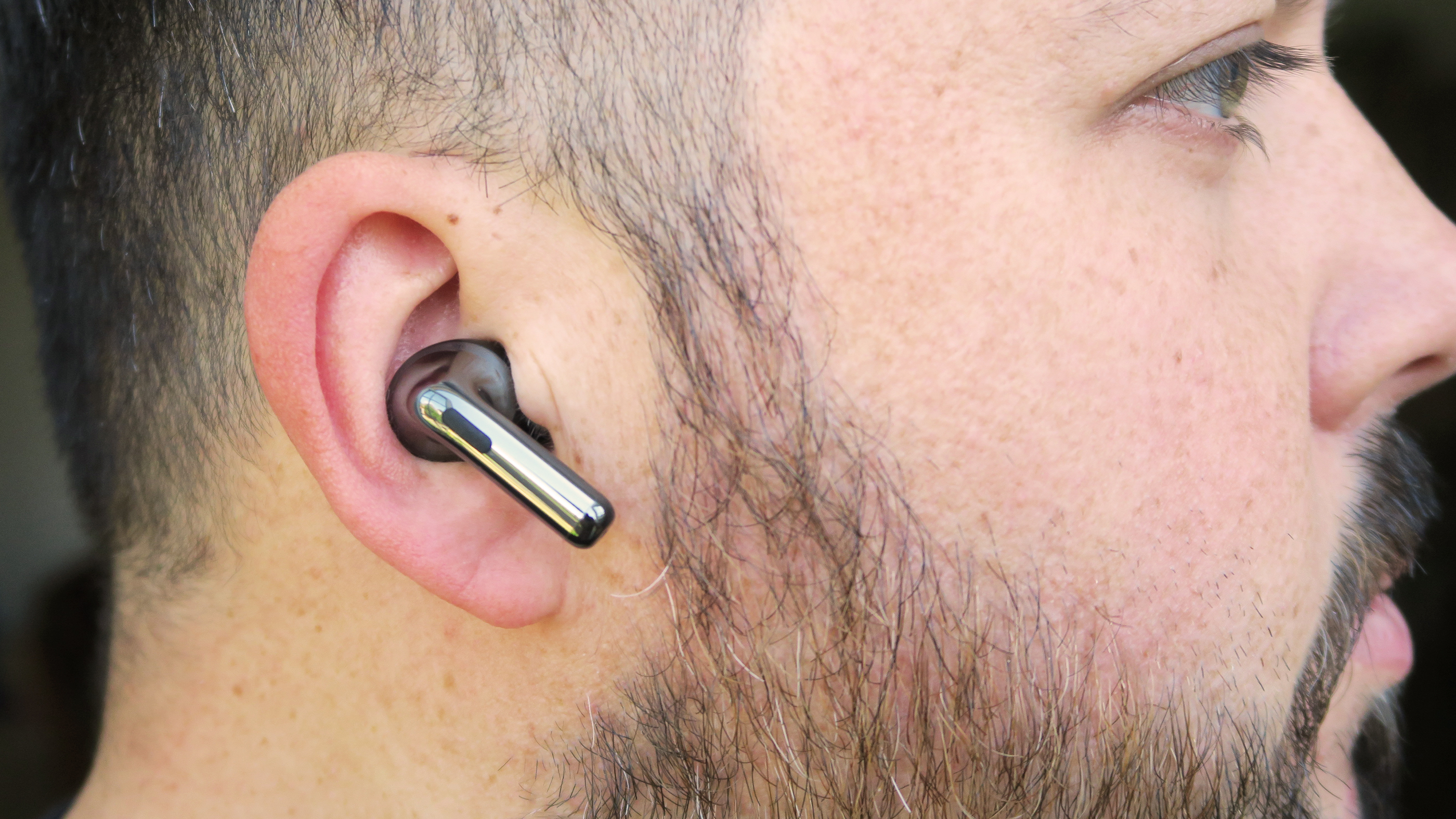
- Excellent, well-balanced sound profile
- Huge upgrade on predecessor that’s comparable to pricier rivals
- Still behind the curve on mic voice isolation and ANC
Perhaps the most divisive aspect of the OnePlus Buds Pro 3 is the audio performance. In a nutshell, this product outputs exceptional sound, with a great default profile, outlandishly lavish bass (without making things muddy), and significantly-improved response in the mids and highs (compared to the Buds Pro 2), that punches above its weight.
The flip side is that, despite the promise of strides made in ANC, microphone performance and transparency mode, the improvements feel significantly more pedestrian.
If you didn’t tell me the buds’ noise cancellation was dynamic, I wouldn’t readily know. ANC performance is good at slightly softening mids, while also trimming low drones and high hisses, but speech and the like still slip through, as do sudden changes in volume in your surroundings. Of course, that’s to be expected to a degree, but still, the performance here when massaging away constant, low-level sounds was fine rather than fantastic.
On calls and when recording your voice, the Buds Pro 3 boast a three-microphone setup, supported by a VPU (voice pick up bone) sensor, however, the results are again just ‘fine’. They’re more full-bodied than the mics on some other buds around this price point, but plosives in speech tend to get lost when the Buds Pro 3 are trying to iron out background noise at the same time.
While I already touched on a lack of awareness to Transparency mode, any benefit over just disabling it altogether went as far as adding more high frequency sounds back into the buds’ passive isolation.
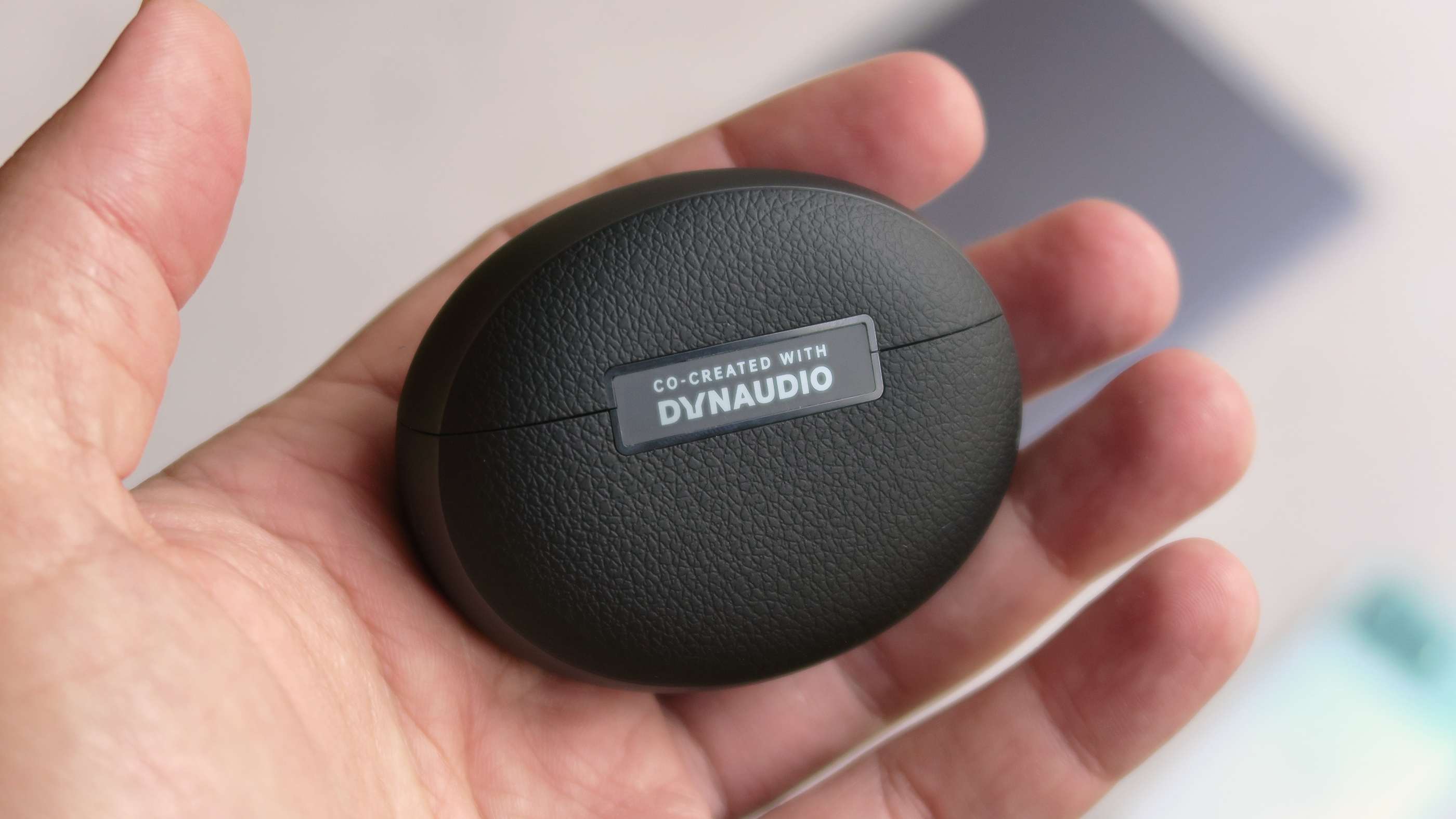
Microphone-bashing out of the way, the OnePlus Buds Pro 3’s excellent sound improvements likely come as a result of the move to dual DACs per driver, per bud; one for the 11mm woofer and one for the 6mm tweeter. Dual DACs, two magnets and a fancy new ceramic-metal composite diaphragm on the woofer, alongside a “small but mighty” 35-micrometer flat voice coil for the high frequencies (likely the biggest contributor the this generation’s more balanced sound profile) collectively elevate the standard of OnePlus’ audio quality to new heights.
The result is a cleaner, more dynamic sound, with great separation, less crowding in the lower frequencies and more definition in the mids and highs.
- Sound quality score: 4 / 5
OnePlus Buds Pro 3 review: Value
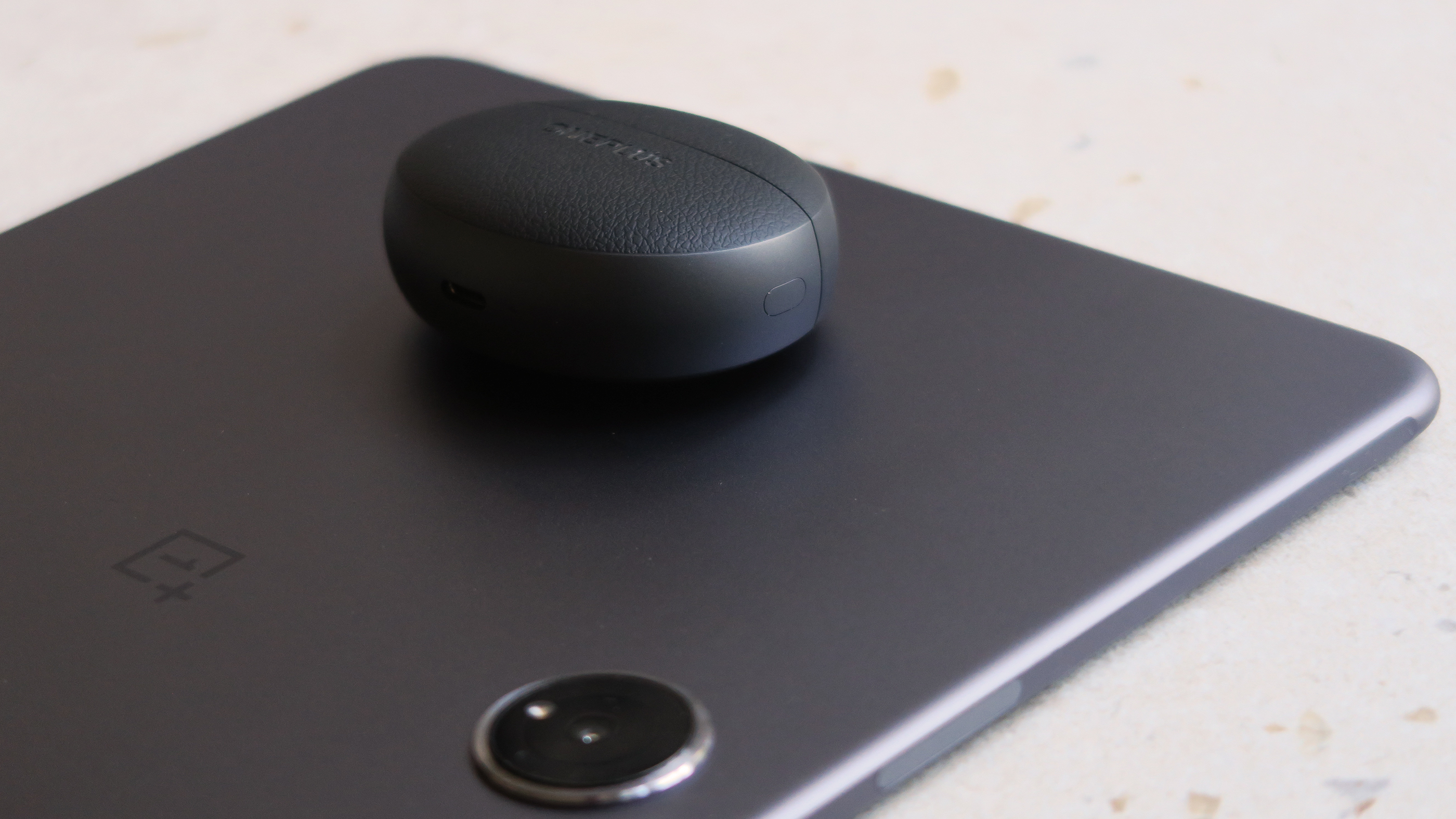
- Superb sound for the price
- You’ll need to pay more for buds with superior ANC
- Discounts bring strong rivals down to a similar price point
If you spend the majority of your time listening on your headphones, rather than talking, the OnePlus Buds Pro 3 impress with just how much they improve over the Buds Pro 2, while also serving up excellent sound outright, that belies their $179 / £199 asking price.
With the transitional pricing space they reside in, the OnePlus Buds Pro 3 serve as worthwhile alternatives to the likes of more established premium entries, like the Sony WF-1000XM5 (originally $300 / £260 but available today in the UK, at least, for as low as £190) or Technics EAH-AZ80 (available today for around $300 / £240), as well as more budget focused options, like the Bose-certified Moto Buds Plus (approximately $150 / £130).
Headphones today aren’t just about listening, however, and so even with their comparatively paltry battery life, if microphone quality, ANC and Transparency mode are major factors for you, you’ll likely want to cough up a little extra and go for a known quantity, like Apple’s AirPods Pro 2 ($250 / £230) or the Bose QuietComfort Earbuds 2 (about $180 / £250 today).
- Value score: 4 / 5
Should I buy the OnePlus Buds Pro 3?
Swipe to scroll horizontally
| Attributes | Notes | Rating |
|---|---|---|
| Features | The OnePlus Buds Pro 3 have practically everything you’d want in a pair of TWS, plus expanded compatibility. | 4.5 / 5 |
| Design | A notable redesign that might divide fans, but offers greater convenience overall. | 4 / 5 |
| Sound quality | Hugely-improved sound that punches up to costlier competitors. ANC is just OK, though. | 4 / 5 |
| Value | Great sound for the price and a rich feature set to boot, but the weaknesses are tricky to completely overlook at this price point. | 4 / 5 |
Buy them if…
Swipe to scroll horizontally
| Sony WF-1000XM5 | Technics EAH-AZ80 | Apple AirPods Pro 2 | Bose QuietComfort Earbuds II | |
|---|---|---|---|---|
| Price (at launch): | $299.99 / £259 / AU$499 | $299 / £259 / AU$499 | $249 / £249 / AU$399 | $299 / £279 / AU$429 |
| Drivers: | 8.4mm | 10mm | 11mm | 9.3mm |
| Active noise cancellation: | Yes | Yes | Yes | Yes |
| Battery life: | Buds: 8 hours. Case: 24 hours | Buds: 7 hours. Case: 25 hours | Buds: 6 hours. Case: 30 hours | 6 hours (buds); 3 extra (charging case) |
| Weight (per earbud): | 4.2g | 7g | 5.3g | 6.2g |
| Connectivity: | Bluetooth 5.3 | Bluetooth 5.3 | Bluetooth 5.3 | Bluetooth 5.3 |
| Frequency range: | 2.402Ghz – 2.480GHz | 20Hz to 40kHz | Unconfirmed | Unconfirmed |
| Waterproofing: | IPX4 | IPX4 | IPX4 | IPX4 |
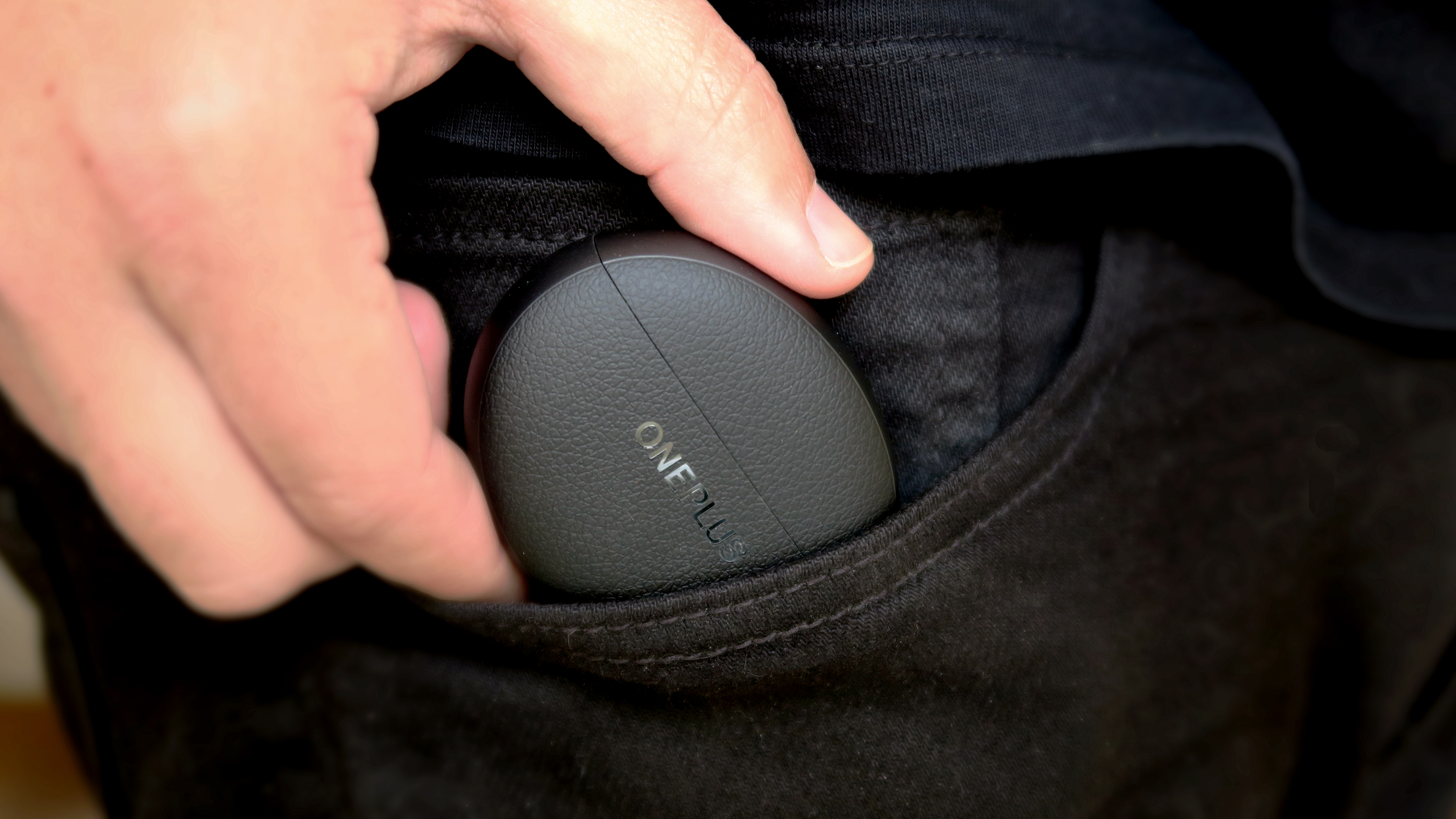
- Review test period: 1.5 weeks
- Testing included streaming from different audio sources, including spatial audio supported videos
- Switched between OnePlus, (other) Android, iPhone and PC devices
I used the OnePlus Buds Pro 3 every day for the duration of the review period, giving them an initial 10-hour burn-in before assessing sound characteristics.
I paired the Buds Pro 3 with all manner of devices, from Android phones made by OnePlus and other manufacturers, as well as iPhones and a Windows laptop. This was partially to test the likes of multipoint, as well as checking which feature, if any, were exclusive to certain device types or operating systems.
I used every feature that the Pro 3’s software experience had to offer and tried the buds themselves in all manner of environments, with varying degrees of ambient noise to test features like ANC and microphone quality against.
As a reviewer with 13 years experience, and having reviewed numerous audio products – from Bluetooth speakers to a myriad of true wireless buds at a full range of price points – I felt confident assessing and scoring the OnePlus Buds Pro 3 in the context of the wider TWS earphones market in which it competes.
Read more about how we test
- First reviewed September 2024

